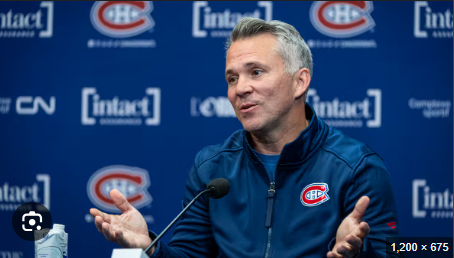
In a world where professional hockey is increasingly shaped by complex strategies, advanced analytics, and evolving game theories, some principles remain timeless. Martin St. Louis, head coach of the Montreal Canadiens, has recently demonstrated the enduring power of fundamental, straightforward hockey philosophies. In a calculated move that prioritizes foundational skills and team unity, St. Louis has reinforced that sometimes, going back to basics can yield the most profound results.
Emphasizing Simplicity in a Complex Era
Modern hockey has witnessed an influx of data-driven decision-making. Coaches and players are bombarded with heat maps, shift charts, and statistical trends that break down every facet of the game. While these tools are invaluable, they can occasionally detract from the simplicity of the sport. Martin St. Louis, a player-turned-coach renowned for his intelligence on and off the ice, understands the importance of blending modern insights with timeless fundamentals.
St. Louis’s recent efforts with the Canadiens have focused on reintroducing basic principles that, while simple, are often overlooked. These include precise passing, strong forechecking, structured defensive play, and, most critically, trust in teammates. The coach’s philosophy is straightforward: skill and advanced tactics are only effective if built upon a solid foundation.
The Practice-Driven Renaissance
Reports out of Montreal’s practice sessions highlight the shift St. Louis has implemented. Instead of overwhelming drills emphasizing intricate set plays, practices now focus on honing essential skills like puck control, quick decision-making, and positioning. Skating drills that teach players to adapt to sudden changes on the ice and quick passing exercises have become staples. The return to these core drills has not only improved individual performances but also enhanced team cohesion.
Forward Cole Caufield noted in a recent interview, “It’s different. Coach [St. Louis] brings this old-school approach with a modern twist, and it reminds you why you fell in love with the game in the first place.” The renewed focus has translated into a more confident, sharper team during games.
Building Team Chemistry from the Ground Up
Beyond physical skills, St. Louis’s approach also emphasizes mental resilience and team unity. The Canadiens’ coach has encouraged open communication among players and fostered an environment where even younger members can voice insights and concerns. By stripping down the complexities of game plans and rebuilding trust among the team, St. Louis has created a setting where players support each other both on and off the ice.
Leadership figures like captain Nick Suzuki have flourished under this approach. “The accountability isn’t just on one guy; it’s shared among all of us,” Suzuki explained. This shared sense of purpose has made the team more adaptable and able to handle pressure in critical moments. Even in closely contested games, the Canadiens have shown more poise, avoiding the panic that can arise when strategies unravel under high-stakes situations.
The Results: More Than Just Wins
While immediate victories are a measurable outcome, St. Louis’s calculated shift has delivered deeper benefits. The Canadiens have become a more formidable opponent, evidenced by their ability to play close games against top NHL contenders and rally back when trailing. Beyond statistics, however, the most significant change has been the visible increase in player confidence and team spirit.
The Canadiens’ resurgence serves as a case study for the power of fundamentals in a league often driven by innovation. St. Louis’s calculated move reminds players and fans alike that while new strategies can offer an edge, hockey’s roots are in the basics. Teaching players to skate, pass, and shoot with precision—and do so with trust and confidence in their teammates—creates a reliable base from which great teams are built.
A Blueprint for Other Teams?
Martin St. Louis’s approach has not gone unnoticed. Coaches across the league have observed the Canadiens’ performance, sparking discussions about the balance between analytics and simplicity. His philosophy might inspire a shift for other teams that find themselves caught in a web of overly complicated tactics that don’t resonate on the ice.
Ultimately, the Canadiens’ return to basic skills and team-building under St. Louis’s guidance reaffirms a timeless truth: while the game evolves, the fundamentals that drive success remain unchanged. It’s a reminder to all hockey purists that sometimes, returning to what’s simple and proven is the boldest move a coach can make.
In Montreal, Martin St. Louis’s bet on the basics is paying off—and proving that building from the ground up can redefine a team’s trajectory.

Leave a Reply